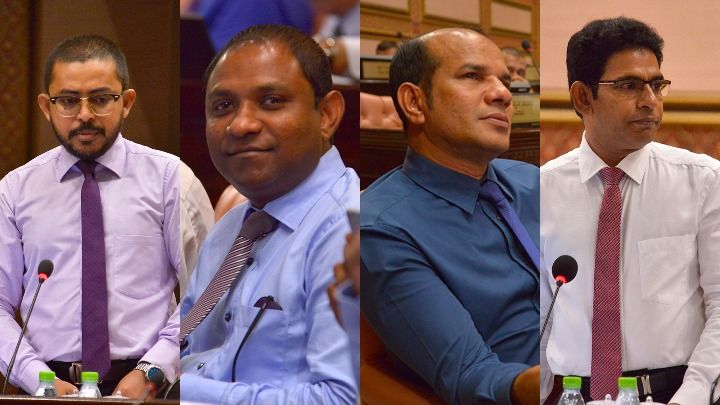Supreme Court hears appeals from disqualified lawmakers
The Supreme Court has begun hearing appeals from four former ruling party lawmakers contentiously deemed to have been stripped of their seats by the Elections Commission.

09 Aug 2017, 9:00 AM
The Supreme Court began hearing appeals Tuesday from four former ruling party lawmakers who were contentiously stripped of their seats.
Mohamed Waheed Ibrahim, Saud Hussain, Mohamed Ameeth and Abdul Latheef Mohamed were deemed to have lost their seats after the Supreme Court ruled that MPs who were elected on political party tickets will be disqualified once the Elections Commission notifies parliament that they have either left their party, been expelled, or switched parties.
But the state attorney maintained that the MPs remained on the PPM’s registry at the Elections Commission until the party formally requested their removal on July 18.
Become a member
Get full access to our archive and personalise your experience.
Already a member?
Discussion
No comments yet. Be the first to share your thoughts!
No comments yet. Be the first to join the conversation!
Join the Conversation
Sign in to share your thoughts under an alias and take part in the discussion. Independent journalism thrives on open, respectful debate — your voice matters.




